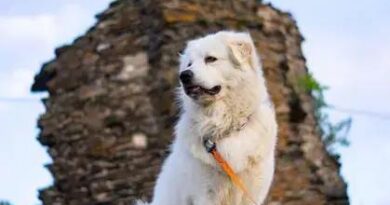O que é Dicas de adestramento
What Are Training Tips for Dogs?
Training tips for dogs encompass a variety of techniques and strategies aimed at teaching your canine companion essential commands and behaviors. These tips are crucial for fostering a well-behaved pet that can integrate smoothly into family life and public settings. Understanding the fundamentals of dog training can significantly enhance the bond between you and your furry friend, making it a rewarding experience for both parties.
Positive Reinforcement Techniques
One of the most effective training tips for dogs is the use of positive reinforcement. This method involves rewarding your dog for desired behaviors, which encourages them to repeat those actions. Rewards can include treats, praise, or playtime, and they should be given immediately after the behavior to create a clear association. Positive reinforcement not only helps in training but also builds trust and strengthens the relationship between you and your dog.
Consistency is Key
Another vital aspect of dog training is consistency. Dogs thrive on routine and clear expectations, so it’s essential to use the same commands and rewards every time. Whether you’re teaching basic commands like “sit” or “stay,” or addressing behavioral issues, maintaining a consistent approach will help your dog understand what is expected of them. This consistency should also extend to all family members to avoid confusion.
Understanding Canine Body Language
To effectively train your dog, it’s important to understand their body language. Dogs communicate through their posture, facial expressions, and movements. Recognizing signs of stress, fear, or excitement can help you adjust your training methods accordingly. For instance, if your dog appears anxious, it may be beneficial to slow down the training process and create a more relaxed environment.
Short and Engaging Training Sessions
Keeping training sessions short and engaging is another effective tip. Dogs have limited attention spans, so it’s best to keep training sessions to about 5-10 minutes. This allows your dog to stay focused and absorb the information without becoming overwhelmed. Incorporating play and fun activities into these sessions can also make learning more enjoyable for your dog.
Socialization is Crucial
Socialization is a key component of dog training that often gets overlooked. Exposing your dog to different environments, people, and other animals helps them develop confidence and reduces the likelihood of fear-based behaviors. Early socialization is particularly important for puppies, but adult dogs can also benefit from new experiences. Gradually introducing your dog to various situations can lead to a more well-rounded and adaptable pet.
Patience and Understanding
Training a dog requires patience and understanding. Every dog learns at their own pace, and some may take longer to grasp certain commands or behaviors. It’s important to remain calm and avoid frustration during the training process. If your dog is struggling, consider breaking down the command into smaller steps or revisiting previous lessons to reinforce their understanding.
Utilizing Professional Help
If you find yourself struggling with training, don’t hesitate to seek professional help. Dog trainers and behaviorists can provide valuable insights and techniques tailored to your dog’s specific needs. Group classes can also be a great way to socialize your dog while learning effective training methods. Investing in professional training can lead to lasting benefits for both you and your dog.
Regular Practice and Reinforcement
Regular practice is essential for reinforcing what your dog has learned. Incorporating training into your daily routine can help solidify commands and behaviors. Whether it’s practicing “sit” before mealtime or “stay” during walks, consistent reinforcement will help your dog retain what they’ve learned. Remember that training is an ongoing process, and regular practice will yield the best results.
Celebrating Progress
Finally, celebrating your dog’s progress is an important part of the training journey. Acknowledging their achievements, no matter how small, can boost their confidence and motivation. Whether it’s a simple pat on the back or a special treat, recognizing your dog’s hard work fosters a positive training environment and encourages them to continue learning.




